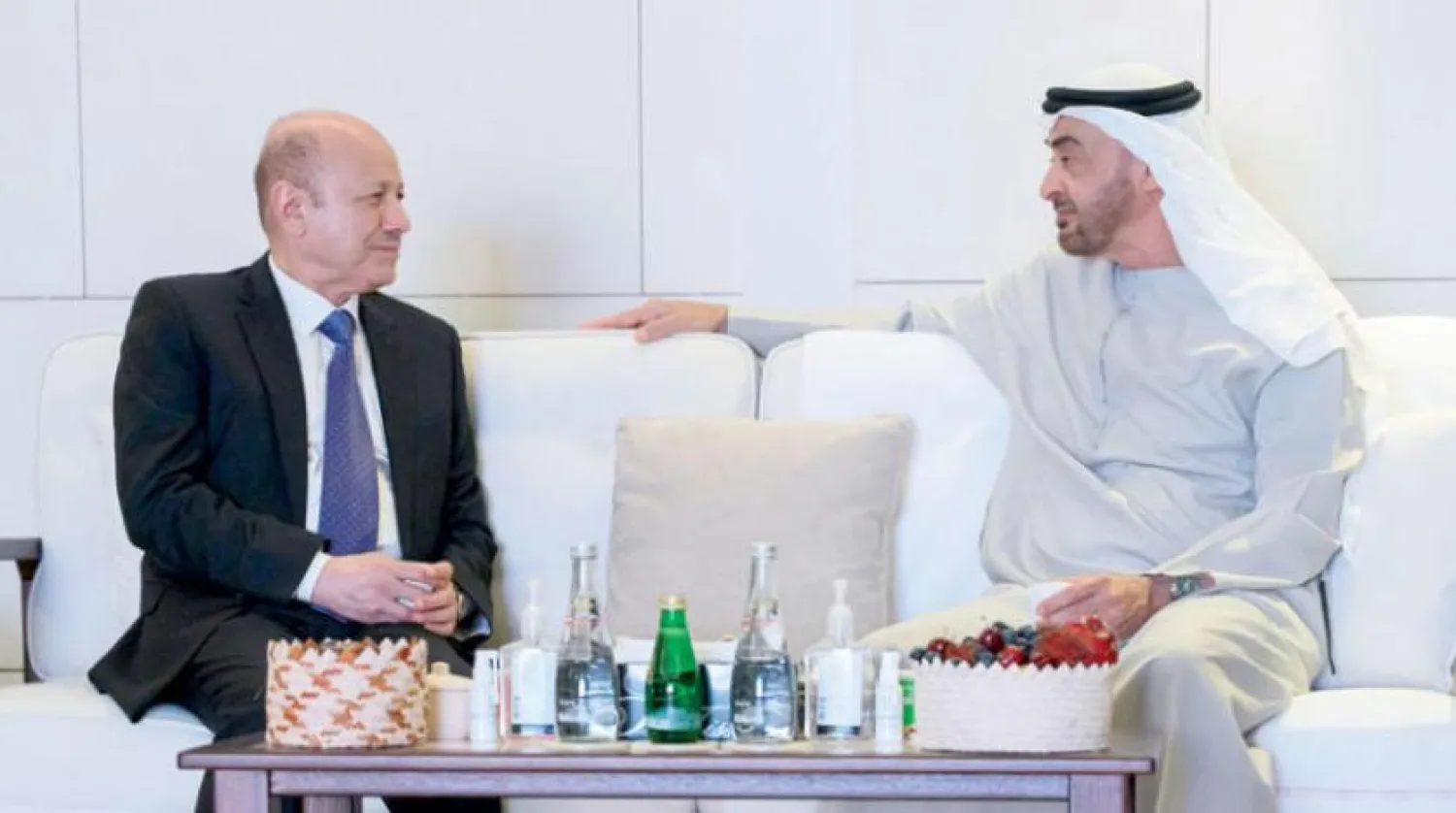UAE President Sheikh Mohamed bin Zayed Al Nahyan discussed with the Chairman of the Yemeni Presidential Leadership Council, Rashad Mohammed al-Alimi, coordinating efforts to deter Houthi terrorist attacks on oil export ports and economic facilities, according to Yemeni sources.
Saba news agency stated that Alimi and the accompanying delegation discussed recent developments in the Yemeni situation with the President and prospects of advancing ties.
Saba reported that the meeting touched on discussions about Yemeni developments and bilateral relations, including presidential and governmental reforms, and coordinated measures to deter the terrorist Houthi attacks on national economic facilities.
Alimi congratulated Sheikh Mohammed, the Emirati government, and the people on the 51st UAE National day, expressing his appreciation for UAE's support to Yemen and the legitimate leadership.
The Yemeni leader arrived in Abu Dhabi from the Jordanian capital, Amman. Alimi is leading the Council's movements in the region to support economic and political reforms and confront Houthi escalation.
Meanwhile, Yemeni Finance Minister Salem Saleh bin Brik met in Riyadh with US Special Envoy for Yemen Tim Lenderking and Ambassador Stephen Fagin. They discussed recent economic developments and regional and international efforts to achieve peace in Yemen.
Yemeni sources stated that the meeting addressed Houthi attacks on oil facilities in Hadramout and Shabwa and their impact on the overall humanitarian, living, economic, and public aspects.
The meeting also addressed the government procedures and options to deal with these repeated attacks and measures taken regarding the port of Hodeidah, which is controlled by the Houthi militia.
According to the Saba agency, the Yemeni Minister discussed his country's needs and technical and material support to build state institutions and infrastructure destroyed by the Houthi war.
Bin Brik reviewed state and government efforts to carry out the necessary economic and financial reforms during the last period and their positive impact on supporting and stabilizing the national economy.
They also addressed the required measures to develop oil and non-oil resources, control expenditures, and enhance transparency and accountability.
The Minister touched on the government's financial priorities and efforts to confront the challenges, given the adverse effects of the Houthi military escalation on the humanitarian and economic aspects.
Bin Brik reaffirmed the importance of the comprehensive economic, financial, and monetary reform program signed by the Arab Monetary Fund (AMF) and the Yemeni government under Saudi sponsorship.
The $1 billion program aims to establish the foundations of economic, financial, and monetary stability in Yemen, strengthen its public finances and external position, rebuild its institutions and enhance its governance and transparency.
Yemeni media reported that the US envoy reaffirmed his country's support to Yemen, aiming to alleviate human and living suffering, improve the economy, and support international efforts to achieve comprehensive and lasting peace.









